By Lee Jon-young | “The Dominican Republic and Korea need to become strategic partners this year,” said Dr. Federico Alberto Cuello Camilo, Ambassador of the Dominican Republic in Korea.
In an exclusive interview with the Diplomacy Journal, Amb. Cuello Camilo said, “As far as I know, H. E. President Yoon Suk-yeol plans to go to Latin America twice this year to participate in the APEC summit in Peru, and later to Brazil to participate in the summit of the G20. It would be an honor for us to host President Yoon during a stopover in the Dominican Republic. He could then sign with H. E. President Luis Abinader a strategic partnership for economic security between the Dominican Republic and Korea.”

He said, “If we do so, we can put there all the priorities for the two countries to work together for the next 60 years of bilateral relations. It's going to be a lot of business for both Dominicans and Koreans and allowing Korea to be the global pivotal state (GPS) in the Dominican Republic, taking advantage of our growing market and our endowment of critical minerals required by the new economics of sustainability and information technology.”
Noting that the Dominican Republic has a growing middle class and boasts of the fastest growing economy in Latin America with over 5 percent yearly growth since 1991, Amb. Cuello Camilo said, “Korean cars: number one. Korean domestic appliances: number one. Korean TVs: number one. Korean cell phones: number one in the Dominican Republic. But this is at the level of the consumer and at the level of industry, we now need to work on the energy transition and on creating a circular economy. This is the top priority if we are to comply with our agreed commitments at the UN on climate change and sustainable development”.
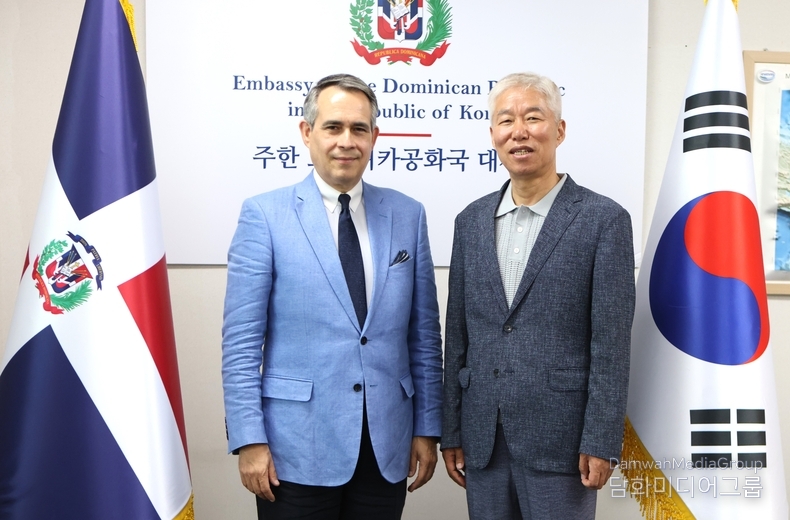
The following is excerpts of the Diplomacy Journal’s interview with Amb. Federico Alberto Cuello Camilo of the Dominican Republic.
Question: You presented credentials as Ambassador Extraordinary and Plenipotentiary of the Dominican Republic in Korea in April 2021. Would you explain about your major achievements and activities since then?
Answer: Korea is a very important country in the world, not only for the Dominican Republic but for many other countries.
We have 62 years of bilateral relations and when we celebrated 60 years, two years ago, we organized a number of activities celebrating that long history.
We are very proud of Korea because when we signed relations with Korea in 1962, we were half as poor as Korea. Our GDP per capita was 220 dollars and Korea was 110. And now it's totally the opposite. Now we are about 23,000 dollars and Korea is over 50,000 dollars.
So the Dominican Republic has done well but Korea has done so much better and this is, I think, very, very impressive.
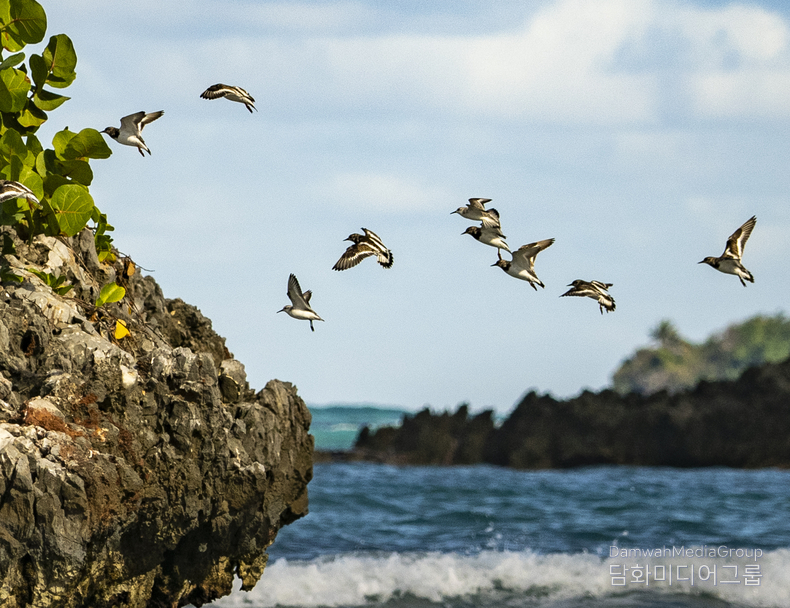
Korea’s main foreign policy goal is now to achieve economic security by becoming a global pivotal state. What will it take for this to happen? Well, you need growing destination markets for your exports, right? You need reliable suppliers of critical inputs to your industry. And you need countries ready to receive your investments that are strategically located with respect to your main markets, so that you can decentralize production. The Dominican Republic ticks every box.
In the Dominican Republic, Korean cars are number one. So are Korean domestic appliances, Korean cell phones and Korean computers. But this is at the level of the consumer and at the level of industry, we now need to work on the energy transition and on creating a circular economy. This is the top priority if we are to comply with our agreed commitments at the UN on climate change and sustainable development.
That is why my vice president, Her Excellency Raquel Peña, delivered a draft strategic alliance for economic security, covering the key issues for our next 60 years of bilateral relations: resilient supply chains, the energy transition, the circular economy, optimized transport networks, security and defense, among others.
On the energy transition, the Dominican Republic has been working with the Korean Development Institute (KDI) on an Economic Innovation Partnership Program (EIPP), a three-year work program seeking to optimize electricity sector, seeking to map out the institutional and legal reforms for the energy transition and then seeking to trigger all the investments for the energy transition. We have to leave behind the polluting sectors and move to renewables. And Korea has mastered all these technologies.
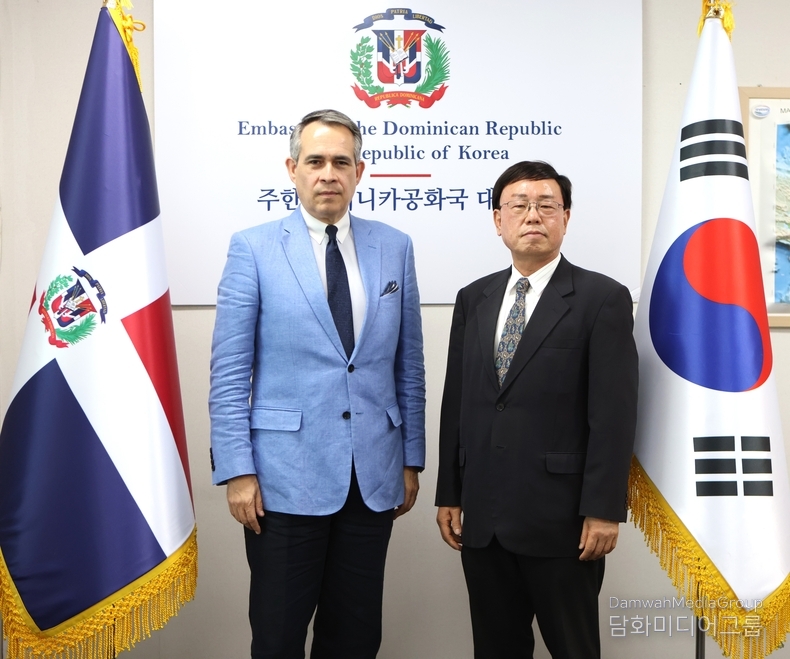
So we need to have free trade between the two countries. One of my major achievements as in my three years and a half as ambassador has been to get a negotiating mandate for Korea with the Dominican Republic.
So Korea has announced in a meeting hosted by the Honorable Inkyo Cheong, Minister of Trade, that it is ready to commence negotiations of economic partnership agreements with four new countries, two Asian (Bangladesh and Pakistan), one European (Serbia) and one from Latin America and the Caribbean (the Dominican Republic).
This didn't happen by chance. It was the result of a strong effort by the embassy to position the Dominican Republic as a country worthy of the consideration of all key actors involved in the decision-making process, whether public or private, so that we could be one of their chosen countries for the next round of negotiations.
And I like very much the approach that the Korean government is taking with the Dominican Republic. Korea doesn't want free trade with the Dominican Republic. Rather, Korea wants an economic partnership agreement where development is the goal and trade is the means. It's a totally different approach.
Together we will work to raise the relationship and to raise the level of development of the Dominican Republic so that more business can be done for both countries. And this is fantastic.
This is exactly the same approach we have with the European Union. I was a negotiator of that agreement and in light of that experience, I think what Korea will be seeking to achieve with the Dominican Republic is going to be very, very positive.
So far what my main achievement as ambassador has been to position the Dominican Republic at a higher level and to position Korea in the Dominican Republic at a higher level. But big, real business needs to be done and real business will be done as a result of the enduring ties built over our first 60 years of bilateral relations, which serve as the launching pad for the next 60 years, with an even more ambitious agenda.
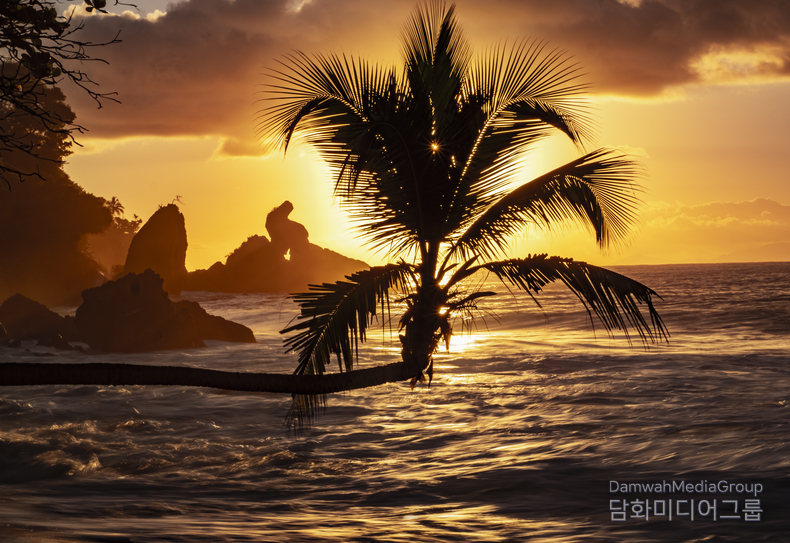
Korea will be the partner for building new airports. Korean energy companies have mapped out what it takes to make the energy transition using those technologies that Korea masters. So hopefully these programs will materialize.
Korea has already worked on expanding LNG storage capacity. Korea is working with the Dominican film industry producing films in the Dominican Republic. The latest one was a series called Surinam, available on Netflix.
But, there's still so much more to do. We have to work on the partnership agreement, we have to work on the energy transition, we have to work on creating a circular economy. We have to work on optimizing the transport network. We need to implement in the Dominican Republic the Korean model for border management, as we too have a difficult neighbor, in our case, Haiti.
Covering all these issues, becoming strategic partners for economic security requires finding the occasion for our presidents to meet. The next opportunity is going to be when President Yoon Suk-yeol goes to Latin America. He will be going to Latin America to participate in the APEC summit in Peru, and then in the summit of the G20 in Brazil.
It would be an honor for us to host President Yoon during a stopover in the Dominican Republic. He could then sign with H. E. President Luis Abinader a strategic partnership for economic security between the Dominican Republic and Korea.
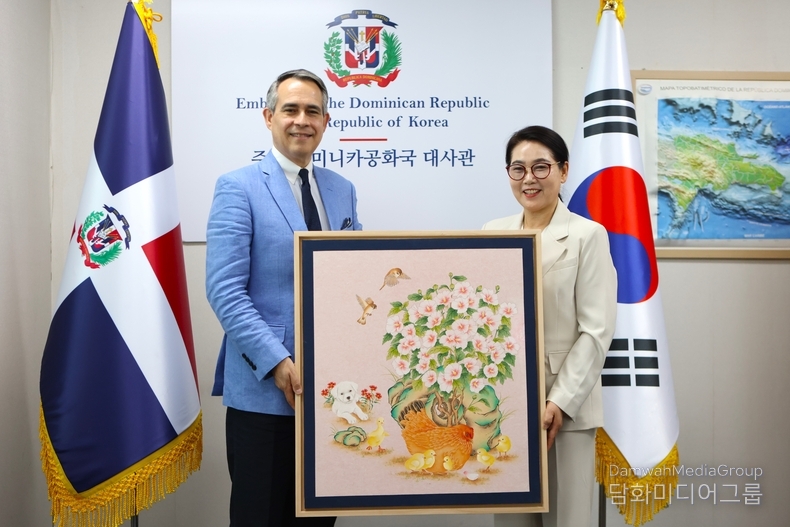
And if we can pull this off, it's going to be a lot of business for everybody, for Dominicans and for Koreans, allowing Korea to be the global pivotal state in the Dominican Republic, catering to the needs of our growing market, adding value to our critical minerals and taking advantage of our optimal location, placing us at less than nine days by vessel from Europe and less than three days from the US.
The Dominican Republic is an excellent location for nearshoring operations to produce from the Dominican Republic for export to the US and to Europe, bypassing any of the ongoing difficulties with the Panama and Suez canals.
Q: Diplomatic relations between the Dominican Republic and South Korea were officially formed in 1962. How has the relationship developed over the period?
A: I represent the Dominican Republic, a country which gained its independence from Spain in 1821 and later defeated the Haitian invaders in 1844.
Your readers may find it useful to be aware that in Korean everybody refers to the Dominican Republic as “Dominica”. But Dominica is another country, where English is spoken as the official language and which exists as an independent country since just a few decades ago.
As I mentioned before, the Dominican Republic and Korea signed relations 62 years ago, on 25 June 1962. Here are some of the highlights of how our bilateral relations have evolved since then:
a. The Dominican Republic benefited from the first-ever Korean Knowledge Sharing Program (KSP), 1990. It is the prime tool for promoting the adoption of Korea’s successful public-policies for economic development;
b. Boom of Korean textile companies in the Dominican Republic since the 1980s;
c. President Leonel Fernandez’s state visit in 2006;
d. Bilateral investment treaty signed June 2006 (entered into force June 2008);
e. Baseball diplomatic history (more than 60 Dominican baseball players in Korea past 10 years) - https://v.kr.kollus.com/xLMhE52j?a&player_version=html5
f. Gabriel Mercedes wins silver medal in Taekwondo at the 2008 Beijing olympics
g. Luisito Pie wins bronze medal in Taekwondo at the 2016 Rio Olympics
h. Prime Minister Nah-yon Lee visits the Dominican Republic, 2019 https://overseas.mofa.go.kr/do-es/brd/m_5794/view.do
i. The DR wins bronze medal against Korea in baseball at the Tokyo Olympics, 2021.
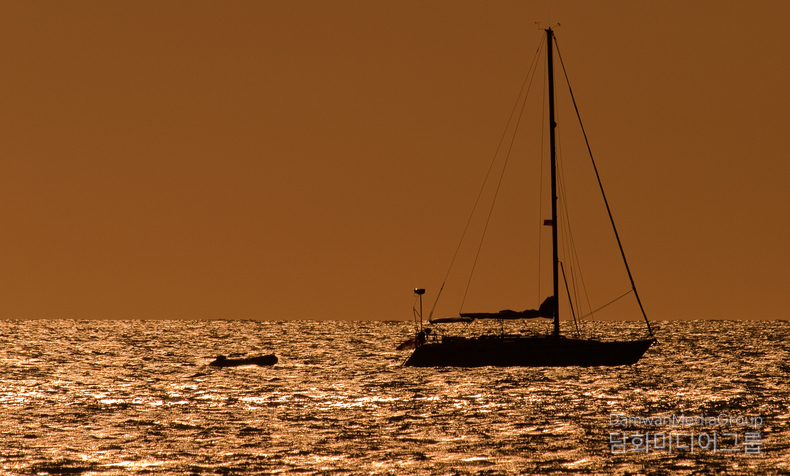
Q: Your country’s national day is February 27. Do you have any plan to have any event this year?
A: President Luis Abinader was reelected in the Dominican Republic. He got a fantastic mandate. He got 59 percent of the vote and he has full control of both chambers of Congress. So this is an unprecedented situation. It's been a long time since the president didn't have such a strong mandate.
So I am hopeful that this will be the opportunity for him to leave a lasting legacy. And part of that legacy probably will involve shuffling a number of ambassadors, myself included.
So it may happen that I am sent to another country but my plans are that sometime by the end of November I will organize the 2nd Dominican week in Korea. And when I have a Dominican Week, there's a big reception, there are cultural activities. Including cooks and chefs that come to produce Dominican food for our events and there's a gala dinner with special guests and we have a Michelin star chef that comes and cooks for us. This in addition to the usual substantive meetings with ministers, members of the Assembly and the private sector.
Q: Your country's economic growth is about average five percent every year. So what is the present volume of bilateral trade between Dominica and South Korea?
A: The Dominican Republic's trade with South Korea is growing very rapidly despite not yet having an economic partnership agreement. We're trading more than many countries that do have FTAs with Korea, reaching about 600 million dollars both ways.
While most countries send primary products to Korea, we are sending finished products, such as our top export, medical devices., electronics, used batteries for recycling... So maybe in the future it would be easier to do all the recycling in the Dominican Republic so that we can avoid the transport costs back and forth. But anyway, things are booming and if we have an economic partnership agreement, there's going to be even more trade for both of us.
The DR offers a very competitive investment environment, with tax breaks for 20 years in priority areas such as tourism, export-processing zones and border development.
With FTAs with the US, the EU, CARICOM and Central America, investors have access on a duty-free, quota-free basis to the main surrounding markets.
With a prime location, as I mentioned, investors can reach Europe in less than 9 hours by plane and less than 9 days by vessel; as well as the US, in less than 2 hours by plane and 3 days by vessel.
With the best road network of the Caribbean basin, 5G telecoms service, 7 international airports and 5 world-class ports, the DR ensures connectivity to the world.
With a sizeable and productive work force remunerated at the most competitive rates, investors can rely on Dominican labor for achieving results.
And with the fastest growing economy in the Americas, the DR market is a safe bet for Korean brands delivering quality at affordable prices for our growing middle class.
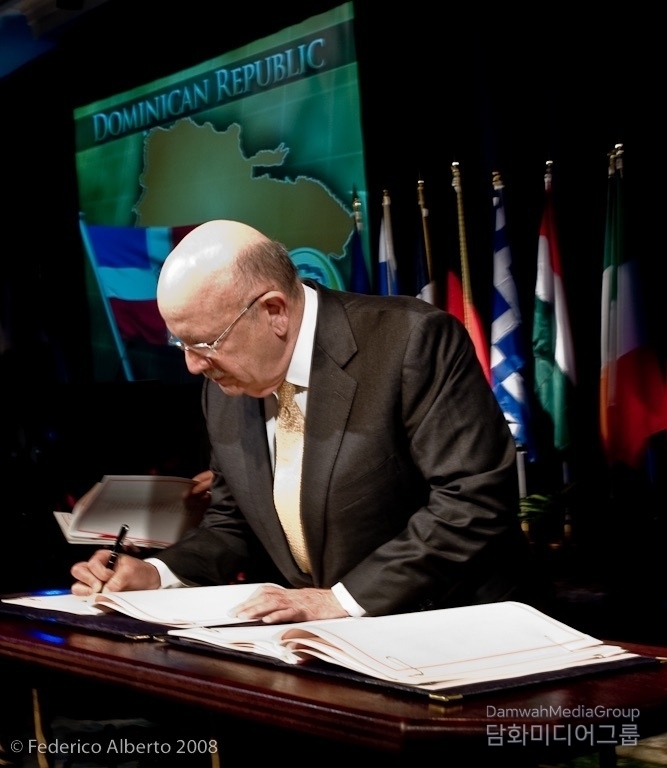
Q: What tourist attractions do you want to recommend to Korean tourists?
A: Koreans go to many countries in Southeast Asia that are very beautiful as well. So thinking about the Dominican Republic and going to the Dominican Republic, it has to be the result of a strong motivation. We can say we have the best golf in the Caribbean but in Thailand you also have golf. We have the best beaches in the Caribbean but in Indonesia and in the Philippines and of course in Thailand and Vietnam, you have very good beaches as well.
What we have is something that cannot be found in many places. A country that knows how to work hard while also having a good time. That’s probably why 97% of tourists choose to come back for more!
What they find in the Dominican Republic is very special. It is the country where the quality of service in hotels is fantastic, where we have a natural heritage that is absolutely stunning and natural parks that are protected areas with 7,000 endemic species.
We have the highest mountain in the Caribbean basin, pico Duarte. At 3,087 meters high, you feel a tremendous surge of energy once you reach the summit, after hiking for about 10 hours from the beautiful town of Jarabacoa.
Our natural parks are protected because all the rivers are born in the mountains of our central range, thus allowing for an extensive network of irrigation canals and hydroelectric dams. So to protect the irrigation system, we are protecting the forests and the mountains, and thus our endemic species. The fact that these have been in operation since the 1950s proves that sustainability is not a recent fashion for the Dominican Republic, but a deliberate policy option.
And then in Samaná Bay, the whales come from the North Atlantic to have their baby whales here. So it's an experience to visit my country, with its natural beauty, its warm people, its hundreds of kilometers of stunning white sand beaches, and of course the historical heritage preserved from colonial times. For it was in what is now the Dominican Republic where Europeans chose to settle first in the Americas.
The first cathedral, the first Vice Royal Palace, the first court of Justice, the first university. It is where everything started. Even the first European to settle New York came from my island, before any Dutch or British settler had arrived.
Q: How long does it take from Seoul to the Dominican Republic?
A: There are no direct flights. We need to connect somewhere, via Mexico, Atlanta, New York or Boston. It's about 13 hours from Seoul and then from any of the airports mentioned to the Dominican Republic, it takes about four hours.
We are working with MOLIT and Korean Air to have an air services agreement, which is, you know, the first step to then have the routes serviced by Korean Air, which is merging with Asiana. So the plan of Korean Air is to specialize in a number of these planes for business travel so that the most demanding travelers can go to very chosen destinations like the Dominican Republic.
But the air services agreement is pending and I hope that by the time I leave Korea, this will have been signed.
Q: Would you tell me what was the most rewarding or happiest moment while you have been working as a diplomat?
A: The happiest moment was the conclusion of the Economic Partnership Agreement between the European Union and the Caribbean countries. The Dominican Republic negotiated as a team, together with the other Caribbean countries and I was part of the Caribbean College of Negotiators, responsible for services and investment. To have my minister there, that day of 15 October 2008, signing the deal, was unforgettable. His name was Carlos Morales. He passed away 10 years ago this year. May he rest in peace. He was my boss for 10 years.
That was the 15th of October 2008 he was there with the other ministers in Barbados signing the agreement. And this agreement was so important for us that we have ratified and put it into force in 19 days. You know, it was “palli palli, Korean style”.
I trust this will happen once our own bilateral economic partnership agreement is signed sometime next year!
I've been privileged to serve as ambassador, head of mission in 6 different destinations, such as Geneva (1999-2002), Brussels (2005-2009), the UN in New York (2009-2011), London (2011-2019), Doha (2019-2020) and now Korea (2020-present), with a number of non-resident responsibilities, such as Poland, the Czech Republic, the Lebanon, Brunei and Thailand.
This experience allows me to say in full confidence that serving in Korea is an extremely important responsibility, honoring the achievements of so many that worked so hard to rebuild this country from the ashes of war and to become this powerhouse of innovation, education, manufacturing and creative industries, a model country for its successful public policies and technological achievements.
Following the interview, Cultural Editor Lee Mi-hyoung of Diplomacy Journal who is also professor of the Department of Cultural Content, the Institute for Adult & Continuing Education of Myongji University, presented a folk painting depicting the Mugunghwa (Rose of Sharon), a puppy, and chicks to Dr. Federico Alberto Cuello Camilo, Ambassador of the Dominican Republic in Korea, as a gift.











